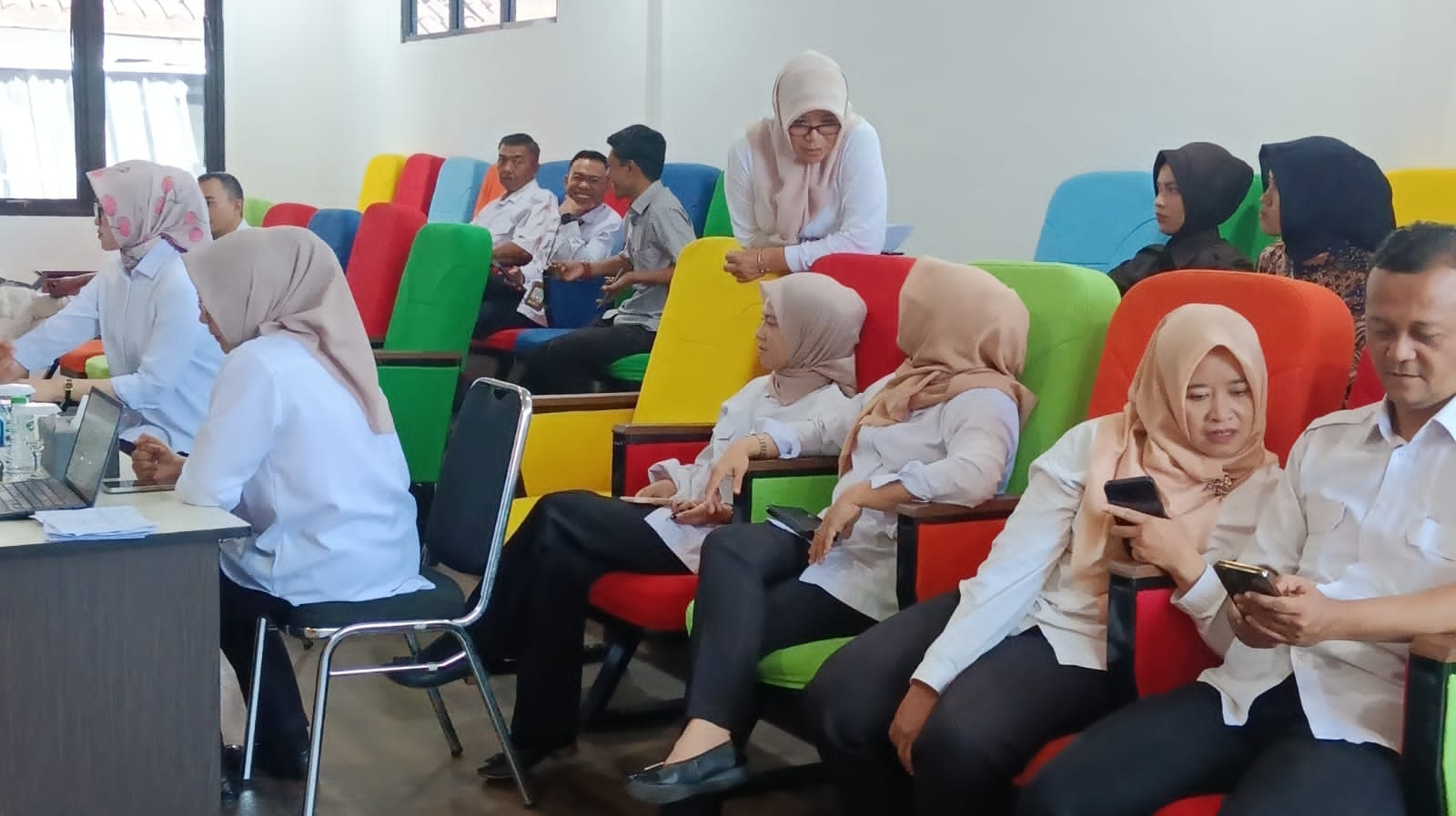AI Beyond the Hype: How Artificial Intelligence is Reshaping Our Future
 |
| Foto oleh cottonbro studio |
Artificial Intelligence has become a buzzword in recent years, but its impact goes beyond the hype. AI is transforming industries, businesses, and our daily lives. In this blog, we will explore how AI is changing the world and what the future holds for this exciting technology.
Understanding AI: Definition and Types of AI
AI is a broad term that encompasses a range of technologies that simulate human intelligence. From machine learning and natural language processing to robotics and computer vision, AI is driving innovation and transforming industries. Understanding the different types of AI is key to understanding its impact.
Artificial Intelligence (AI) is a branch of computer science that focuses on creating machines and software that can perform tasks that typically require human intelligence, such as perception, reasoning, learning, and decision-making. AI systems are designed to improve their performance by learning from data, experience, and feedback.
There are several types of AI, including:
- Rule-Based AI: This type of AI operates based on a set of pre-defined rules and uses logical reasoning to draw conclusions. Rule-based systems are best suited for solving problems with a clear set of rules, such as in chess or other games.
- Machine Learning: Machine learning is a subset of AI that involves training a model on a large dataset and allowing it to learn from the data. The model can then use what it has learned to make predictions or decisions about new data.
- Deep Learning: Deep learning is a subset of machine learning that involves training artificial neural networks to learn from large datasets. Deep learning is particularly well-suited for solving problems involving large amounts of unstructured data, such as image or speech recognition.
- Natural Language Processing (NLP): NLP involves teaching computers to understand and respond to human language. NLP is used in applications such as chatbots, virtual assistants, and speech recognition.
- Robotics: Robotics involves designing and programming machines that can perform tasks autonomously. Robots can be used in a variety of settings, from manufacturing and logistics to healthcare and entertainment.
- Computer Vision: Computer vision involves teaching computers to interpret and understand visual information from the world around them. This technology is used in applications such as facial recognition, object detection, and self-driving cars.
Understanding the different types of AI is essential for anyone looking to work with or implement AI technologies. By understanding the strengths and limitations of each type of AI, developers can design systems that are best suited to the specific needs of their application.
AI in Business: From Automation to Decision-Making
AI is being used in a variety of ways in business, from automating repetitive tasks to assisting in decision-making. AI-powered chatbots and virtual assistants are improving customer service, while predictive analytics and machine learning algorithms are helping companies make data-driven decisions.
AI is transforming the way businesses operate by automating repetitive tasks, improving customer service, and assisting in decision-making. Here are some of the ways AI is being used in business:
- Automation: AI-powered automation can help businesses streamline their operations by automating repetitive tasks, such as data entry, invoice processing, and customer service. This can free up employees to focus on higher-level tasks that require human skills, such as problem-solving and decision-making.
- Customer Service: AI-powered chatbots and virtual assistants can provide 24/7 customer support, answering common questions and resolving issues quickly and efficiently. This can improve customer satisfaction while reducing the workload for human customer service agents.
- Predictive Analytics: AI algorithms can analyze large amounts of data to identify patterns and trends, helping businesses make data-driven decisions. Predictive analytics can be used to forecast future trends, identify potential risks and opportunities, and optimize business processes.
- Marketing and Sales: AI can help businesses personalize their marketing and sales efforts by analyzing customer data to identify preferences and behaviors. This can help businesses target their marketing and sales efforts more effectively, improving conversion rates and customer retention.
- Decision-Making: AI-powered decision-making tools can help businesses make complex decisions by analyzing large amounts of data and presenting insights and recommendations. This can help businesses make more informed decisions and reduce the risk of human error.
Overall, AI is helping businesses improve efficiency, reduce costs, and make better decisions. As AI technology continues to advance, businesses will likely find even more ways to leverage its power to gain a competitive advantage in their industries.
AI in Society: Changing the Way We Live, Work, and Communicate
AI is changing the way we live, work, and communicate. From smart homes and wearable technology to autonomous vehicles and virtual reality, AI is making our lives easier, more convenient, and more connected.
AI is transforming society in numerous ways, enabling new opportunities and changing the way we live, work, and communicate. Here are some of the ways in which AI is impacting society:
- Smart Homes: AI-powered devices such as smart speakers, thermostats, and security systems are making our homes more efficient and convenient. These devices can learn our preferences and adjust settings accordingly, allowing us to control our homes with our voices or smartphones.
- Healthcare: AI is being used to improve healthcare in a variety of ways, from assisting with medical diagnosis and drug development to monitoring patient health and providing personalized treatment recommendations.
- Education: AI-powered tools are making education more accessible and effective, enabling personalized learning and providing new opportunities for remote learning.
- Autonomous Vehicles: Self-driving cars and other autonomous vehicles are being developed that have the potential to reduce accidents, improve traffic flow, and provide greater mobility for people with disabilities or who live in areas without public transportation.
- Virtual Reality: AI-powered virtual and augmented reality technologies are being used to enhance training and education, create new entertainment experiences, and provide new ways to interact with the world around us.
- Employment: AI is changing the nature of work, with some jobs being automated while new jobs are created that require AI skills. This is leading to a shift in the skills and knowledge needed for success in the job market.
Overall, AI is having a profound impact on society, enabling new possibilities and changing the way we live, work, and communicate. As AI technology continues to evolve and become more advanced, its impact on society is likely to grow even greater in the coming years. It is important for society to carefully consider the potential benefits and risks associated with AI and work together to ensure that its development and deployment are aligned with our values and priorities.
AI in Healthcare: Revolutionizing Medicine and Patient Care
AI is revolutionizing healthcare by improving diagnosis, treatment, and patient care. From analyzing medical images to developing personalized treatment plans, AI is helping doctors and researchers unlock new insights and breakthroughs.
AI is transforming the field of healthcare by enabling new advancements in medical research, diagnosis, and treatment. Here are some of the ways in which AI is revolutionizing healthcare:
- Medical Imaging: AI algorithms can analyze medical images, such as X-rays, MRIs, and CT scans, to identify patterns and anomalies that may be difficult for human experts to detect. This can help doctors diagnose diseases and conditions more accurately and quickly.
- Drug Development: AI can help researchers identify new drug targets, predict the efficacy of new treatments, and optimize dosing regimens. This can speed up the drug development process and help bring new treatments to market faster.
- Personalized Medicine: AI can analyze patient data, such as genetic information and medical history, to develop personalized treatment plans that are tailored to each patient’s individual needs. This can improve treatment outcomes and reduce the risk of side effects.
- Telemedicine: AI-powered telemedicine platforms can connect patients with healthcare providers remotely, enabling more convenient and accessible healthcare services. This can improve patient access to care, particularly in underserved areas.
- Medical Robotics: AI-powered medical robots can assist with surgeries and other medical procedures, providing greater precision and reducing the risk of complications. This can improve patient outcomes and reduce recovery times.
Overall, AI is revolutionizing healthcare by enabling new breakthroughs in medical research, improving diagnosis and treatment, and enhancing patient care. As AI technology continues to advance, its impact on healthcare is likely to grow even greater in the coming years, offering new opportunities to improve the health and wellbeing of people around the world.
AI and Ethics: Balancing Innovation and Responsibility
As AI becomes more powerful and ubiquitous, it raises ethical concerns about privacy, bias, and accountability. We must find ways to balance innovation with responsibility and ensure that AI benefits society as a whole.
As AI technology continues to evolve and become more advanced, it is important to consider the ethical implications of its development and deployment. Here are some of the ethical concerns associated with AI:
- Privacy: AI systems collect and process vast amounts of data, raising concerns about the privacy and security of personal information. It is important to ensure that data is collected and used in ways that are transparent and respectful of individual privacy rights.
- Bias: AI algorithms can reflect and amplify human biases, potentially leading to unfair or discriminatory outcomes. It is important to ensure that AI systems are designed and deployed in ways that are fair and unbiased.
- Accountability: As AI systems become more autonomous and make decisions on their own, it can be difficult to determine who is responsible for the outcomes. It is important to establish clear lines of accountability and ensure that those responsible are held accountable for the decisions made by AI systems.
- Transparency: AI systems can be complex and difficult to understand, making it challenging to evaluate their decisions and outcomes. It is important to ensure that AI systems are transparent and explainable, so that their decisions can be evaluated and understood.
- Safety: AI systems can have significant impacts on safety, particularly in areas such as transportation and healthcare. It is important to ensure that AI systems are designed and deployed in ways that prioritize safety and minimize risks to human life and wellbeing.
To address these ethical concerns, it is important to involve a diverse range of stakeholders, including policymakers, researchers, and members of the public, in the development and deployment of AI technology. This can help ensure that AI benefits society as a whole and is aligned with our values and priorities. Ultimately, the responsible development and deployment of AI will require a careful balancing of innovation and responsibility, with a focus on promoting the greater good for all.
The Future of AI: Opportunities and Challenges
The future of AI is full of opportunities and challenges. While AI has the potential to transform our world in positive ways, it also poses risks and uncertainties. We must work together to harness the power of AI and shape its future for the better.
The future of AI is both exciting and uncertain. Here are some of the opportunities and challenges that lie ahead:
Opportunities:
- Increased efficiency and productivity: AI has the potential to automate routine tasks and optimize complex processes, leading to greater efficiency and productivity in a wide range of industries.
- Improved decision-making: AI can analyze vast amounts of data and provide insights that humans may not be able to identify on their own, leading to better decision-making and more informed choices.
- Enhanced personalization: AI can analyze individual preferences and behaviors to provide personalized experiences and recommendations, from personalized healthcare treatments to personalized shopping recommendations.
Advancements in science and research: AI can help researchers unlock new insights and breakthroughs in fields such as medicine, climate science, and particle physics, leading to new discoveries and innovations.
Challenges:
- Ethical concerns: As AI becomes more powerful and ubiquitous, it raises ethical concerns about privacy, bias, and accountability. We must find ways to balance innovation with responsibility and ensure that AI benefits society as a whole.
- Job displacement: AI has the potential to automate many jobs, leading to job displacement and economic disruption. It is important to develop strategies to mitigate the impact of automation on workers and support the development of new job opportunities.
- Security risks: As AI becomes more advanced, it may be used by malicious actors to launch cyber attacks or engage in other forms of criminal activity. It is important to develop robust security measures to mitigate these risks.
- Technological limitations: AI is still a relatively new technology, and there are many technical challenges that must be addressed in order to fully realize its potential. These challenges include developing more powerful and efficient hardware, improving natural language processing capabilities, and increasing the accuracy of machine learning algorithms.
Overall, the future of AI is full of opportunities and challenges. To ensure that AI benefits society as a whole, it is important to work together to address these challenges and shape the development and deployment of AI technology in a responsible and ethical way.
Conclusion
AI is transforming our world in profound ways, from healthcare and business to society and communication. As we look to the future, we must find ways to harness the power of AI while addressing its challenges and risks. By working together, we can shape the future of AI and create a better world for all.
AI is undoubtedly transforming our world in profound ways, and its potential applications are only limited by our imagination. However, as with any powerful technology, AI comes with risks and challenges that must be addressed. These challenges include ethical concerns, job displacement, security risks, and technological limitations, among others.
To fully harness the power of AI, we must work together to address these challenges and shape the future of AI in a responsible and ethical way. This requires collaboration between businesses, governments, academia, and civil society, as well as a commitment to transparency, accountability, and inclusivity.
You may also like : Erick Regarded as Having the Potential to Be a Vice Presidential Candidate,
We must also ensure that the benefits of AI are shared equitably and that its development is not driven solely by profit motives. This means prioritizing the public good and ensuring that AI serves the needs of all people, regardless of their background or circumstances.
In short, the future of AI is bright, but it is also complex and uncertain. By working together and approaching AI development with care and responsibility, we can unlock its full potential and create a better world for all.







